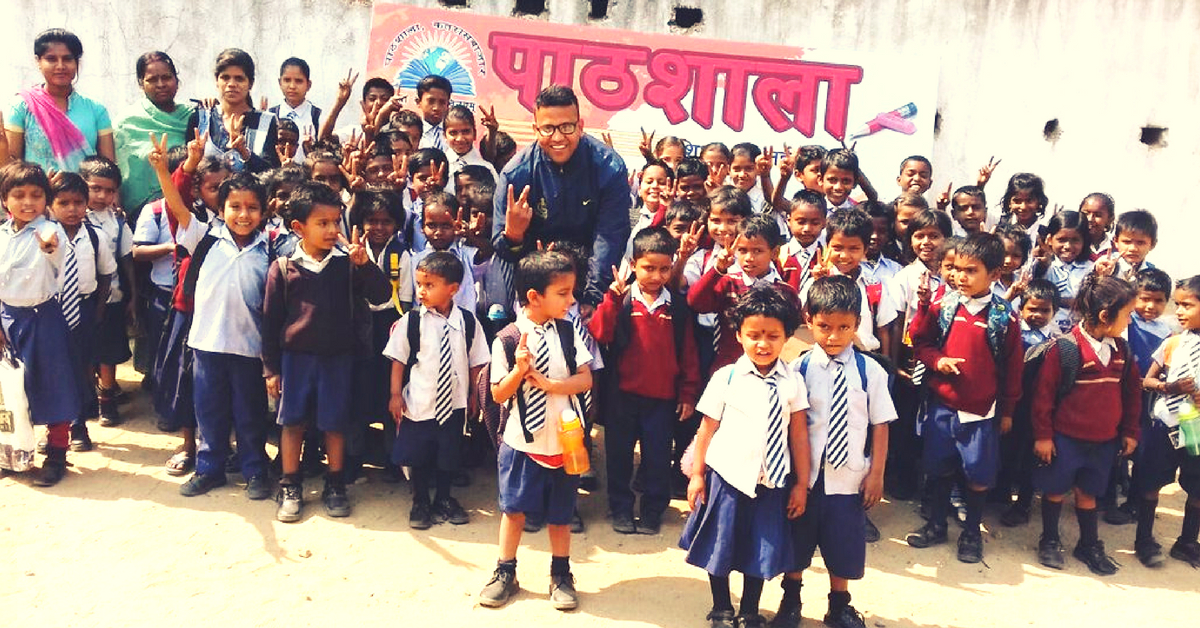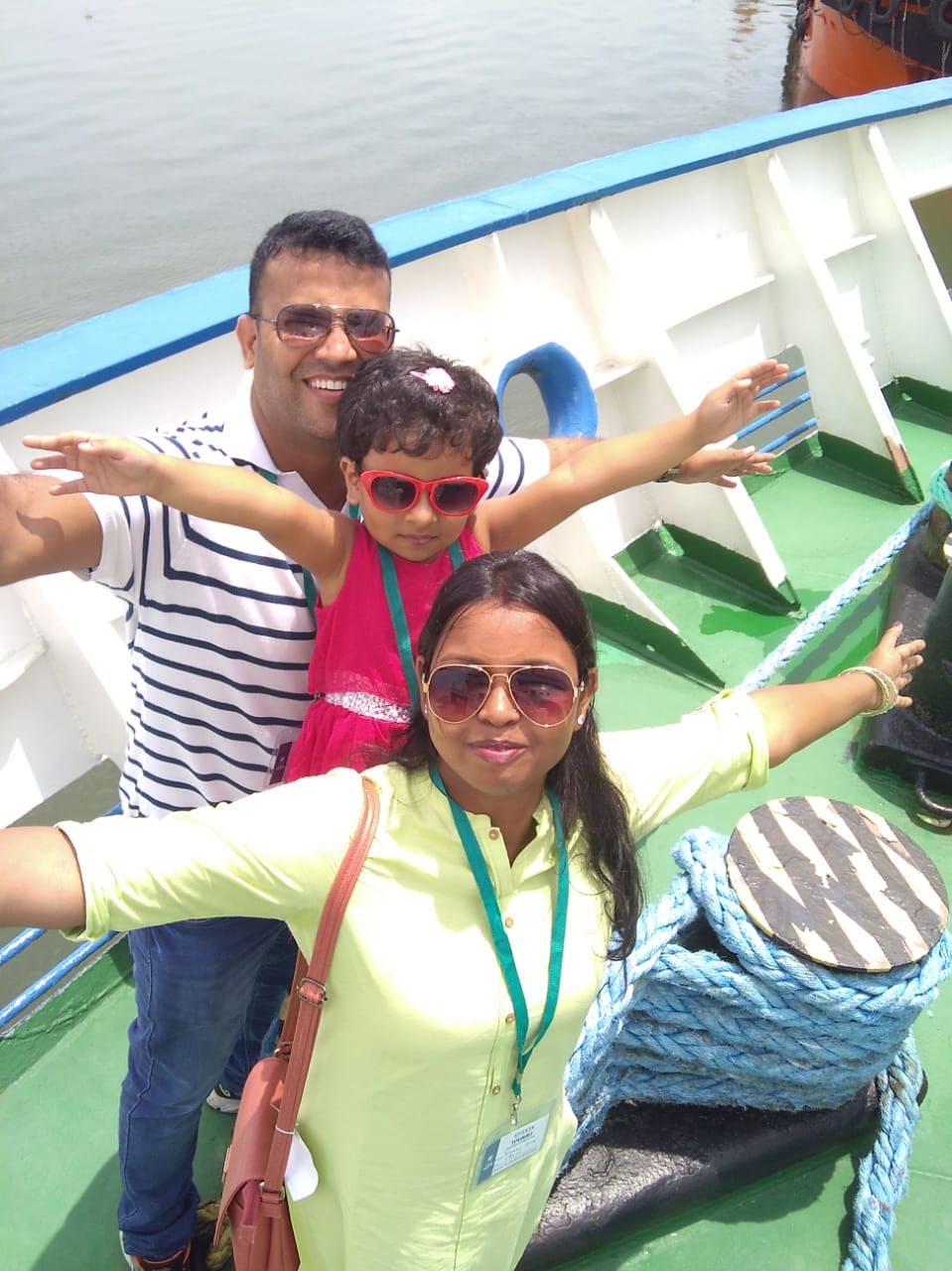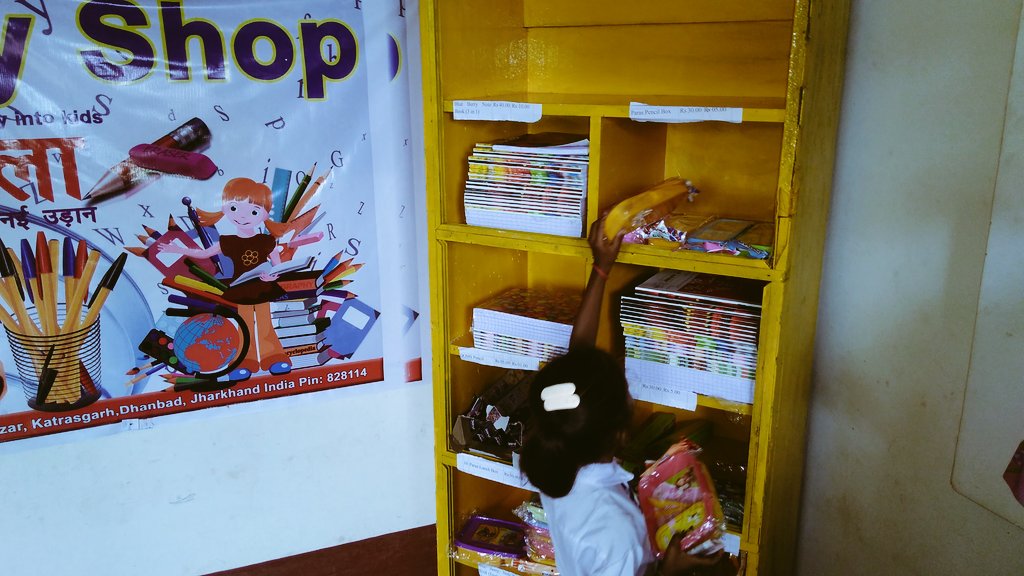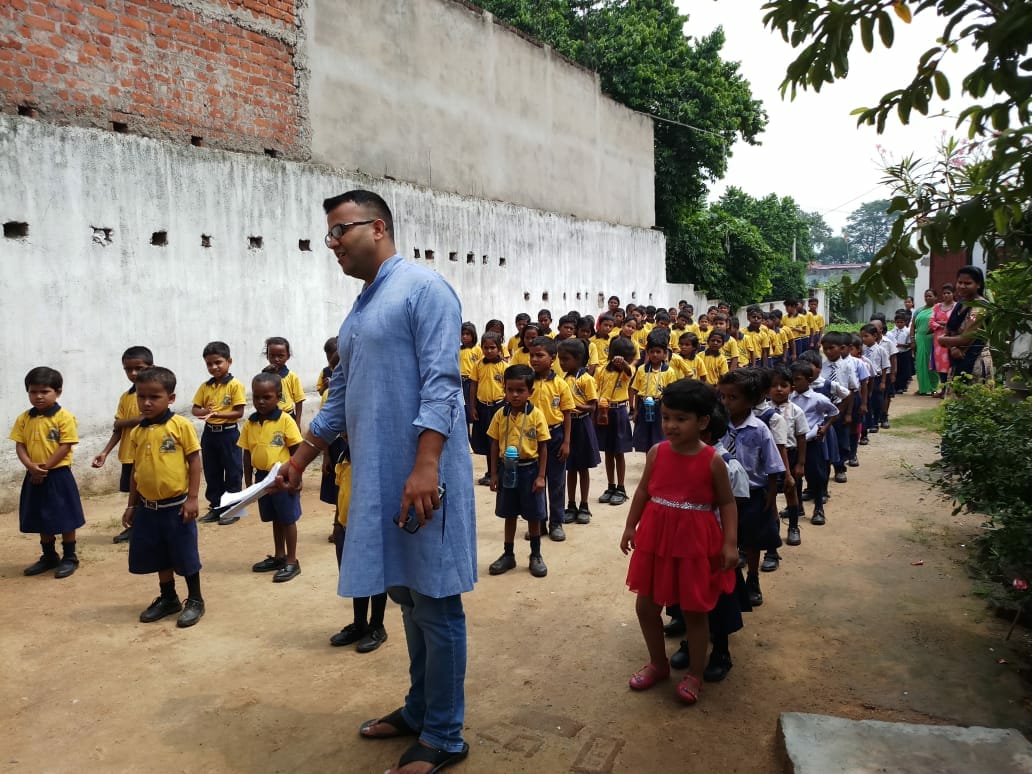Jharkhand Man Uses Ancestral Home, 60% of Salary to Run 3 Schools For Poor Kids!
At the peak of his career, it would have been easy for Dev to settle into a posh metro city and live a comfortable life. Secure the future with his wife, Dr Priyanka, an IIT alumnus and professor at a government college. But he decided to tread the road less taken.

32-year-old Dev Kumar Verma was born to a paan shop owner and coal labourer in the village of Katras in the Dhanbad district of Jharkhand (then undivided Bihar). Growing up, he saw his village which was full of either small-time shop owners or coal labourers grappling with alcohol addiction. Education was not a priority, neither on the minds of the labourers nor their growing children.
But Dev and his family decided to turn the tide. Years later, he became a role model for his villagers. Apart from completing his Masters from the National Institute of Technology, Durgapur, he even earned an MDP from the premier Indian Institute of Management, Lucknow, studied LLB and received an annual package of Rs 15 lakh/per annum with Maharatna Company, Coal India Ltd.
At the peak of his career, it would have been easy for Dev to settle into a posh metro city and live a comfortable life. Secure the future with his wife, Dr Priyanka, an IIT alumnus and professor at a government college. But he decided to tread the road less taken.
In an exclusive with The Better India, he recalls his journey of uplifting his village of coal mine labourers through education.

He begins, “Where I grew up, education wasn’t given much importance, still isn’t. More than 33% of the population in Jharkhand is illiterate. The area around my district has a population of 60 lakhs, where more than a lakh are children. There are only four schools that impart quality education there. Most of these kids, coming from underprivileged backgrounds either attend government schools or don’t pursue an education at all. And I wanted to change that.”
Dev, who transferred to Jharkhand after four years of working in Kolkata, reveals how the Lok Sabha elections of 2014 were the turning point of his life. He was appointed as the district election in-charge at the time. To train personnel, he travelled to government schools which served as centres during the polls and stumbled upon poorly written leave applications by students.
“I was shocked when I saw that class 9 and 10 students couldn’t spell basic words like ‘teacher’ in Hindi. It was heartbreaking. The teachers had approved it without even correcting these mistakes. It gave a glimpse of the pitiable condition of education in these schools. So I decided to address these concerns and wrote letters to then Chief Minister and Education Minister of Jharkhand. The reply came with a note of appreciation for having fulfilled my duty as a responsible citizen.”
And while it was reassuring, he did not see any changes happening on ground for the next four months.
Dev and Priyanka are parents to two daughters, one five years old, and the other two months old. Their inherent concern for children’s education inspired them to take matters into their hands. They transformed their ancestral home into a free tuition facility for kids in their village. While it started off with only five students, the number gradually began to rise.
“When the number of enrollments increased to 100 kids, we decided to register the school, and that’s how ‘Pathshala’ came about, where we educate kids from the coal belts of Jharkhand up till class five in English-medium, free of cost. We began with seven kids and three teachers; today, we have over 500 kids in three branches with 15 staff members and non-teaching staff as well,” he beams.
There were several challenges along the way.

While some students would turn up for the first two days, they would go missing on the third because they would have been asked to help their parents earn daily wages. So Dev and Priyanka visited them in their homes, enquired about the kid’s absenteeism and persuaded the parents to send their kids back to school.
“I would tell them about my childhood and success story that reinstated their faith. If a boy from their village could become a government officer, then their children could turn their lives around too. It inspired them to let their kids give education a chance,” he adds.
The challenges though, weren’t just outside the school, but even within the classroom. Many of the students were receiving brand new stationery, uniforms, shoes, school bags, for the first time. There would often be instances where they would turn to petty theft. But they couldn’t be blamed, given their financial instability, Dev felt.
And he soon found an innovative way to tackle this menace, teaching the kids the importance of honesty at the same time.

He explains, “That is how the concept of Honesty Shop or Imaandari ki Dukaan came about. We identified a room where we stored everything that we were giving the students free, like school uniforms, shoes, stationery etc. in a cupboard. We would ask them to drop nominal charges into a box if they had to avail of these things. So, if a book cost us Rs 40 at the time of purchase, we would tell them to drop Rs 5 for it.”
He continues, “While it was difficult for the children to understand that everything had its price and nothing would always be free, we found a change in the behaviour when they started appreciating and understanding the value of these facilities. The cases of thefts went down drastically. The concept was lauded by the Chief Minister of Jharkhand and Education Secretary Anil Swarup. Many schools adopted it after that.”
Today, each of the three schools is equipped with projectors, laptops, biometric attendance, aqua guards, separate toilets for boys and girls, playgrounds etc. The initiative was supported by Dev’s family since its beginning, and in recent years, his friends too came forward to support the school with donations ranging from Rs 100 to Rs 10,000.
“Whenever we are in need, say for instance, of 100 sweaters, I create a post for it to put it up on our website as well social media, which makes it easy for well-wishers to come forward and help with whatever they can. Most of my salary, about 60% of one lakh I make per month, goes into the functioning of the schools. With our latest branch coming up, it is difficult, since we have to spend lakhs for construction. But we don’t let our children suffer. We have made it this far; we will continue to strive,” he says.
And so, despite being in a good position, the man prefers simplicity over extravaganza. Dressed simply, with a home that is devoid of luxuries such as an air conditioner, sofa set, or even an aqua guard, he carries on.
Read more: Govt Servant Spends 40% of His Salary To Build the Future of Hundreds of Kids!
“Another struggle is to constantly motivate the students to concentrate on academics,” reveals Dev.

“But the results of our efforts are showing. Today, several of them speak in English, attend and win awards in cultural events, crafts, elocution, extempore and debates. More than anything, the joy on the faces of their parents when they see their children progress, moves us,” he adds.
When I ask him about his vision, he says, “Just like Anand Kumar’s Super 30, we are now preparing students for Super 50. We want them to secure admission to the Sainik School and other similar educational institutions which will provide them with free quality education and help brighten their future. We want to expand Pathshala in the coming years to help more students study in the upper classes. My ultimate aim is to have a junior college (10+2) where these kids can get a free education and attain good jobs to secure their future,” he signs off.
If this story inspired you, get in touch with Dev at [email protected] or speak to him at 9470595075
(Edited by Shruti Singhal)
Like this story? Or have something to share?
Write to us: [email protected]
Connect with us on Facebook and Twitter.
If you found our stories insightful, informative, or even just enjoyable, we invite you to consider making a voluntary payment to support the work we do at The Better India. Your contribution helps us continue producing quality content that educates, inspires, and drives positive change.
Choose one of the payment options below for your contribution-
By paying for the stories you value, you directly contribute to sustaining our efforts focused on making a difference in the world. Together, let’s ensure that impactful stories continue to be told and shared, enriching lives and communities alike.
Thank you for your support. Here are some frequently asked questions you might find helpful to know why you are contributing?


This story made me
-
97
-
121
-
89
-
167











